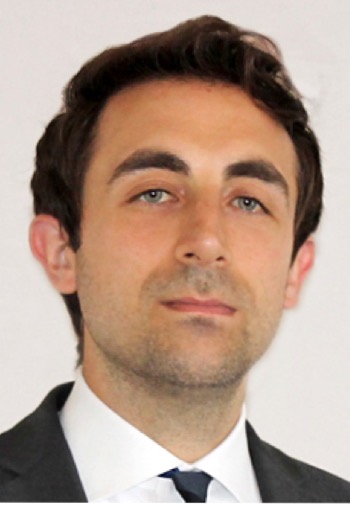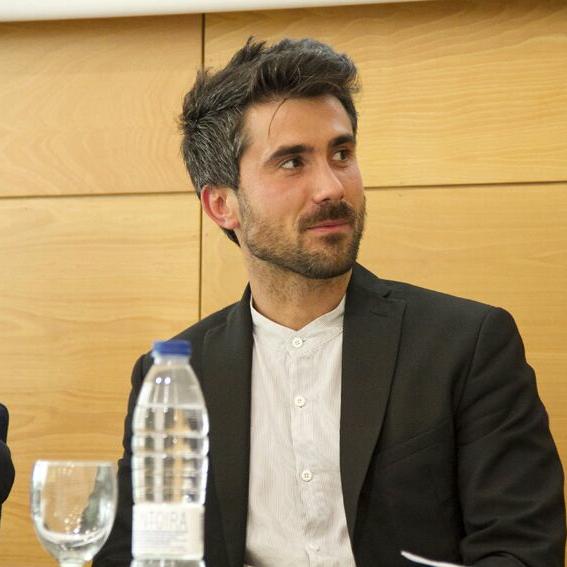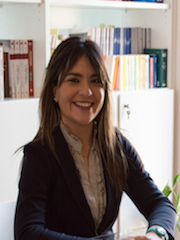Studying at the University of Verona
Here you can find information on the organisational aspects of the Programme, lecture timetables, learning activities and useful contact details for your time at the University, from enrolment to graduation.
Academic calendar
The academic calendar shows the deadlines and scheduled events that are relevant to students, teaching and technical-administrative staff of the University. Public holidays and University closures are also indicated. The academic year normally begins on 1 October each year and ends on 30 September of the following year.
Course calendar
The Academic Calendar sets out the degree programme lecture and exam timetables, as well as the relevant university closure dates..
| Period | From | To |
|---|---|---|
| 1° periodo lezioni (1A) | Sep 15, 2022 | Oct 27, 2022 |
| 1° periodo lezioni (1B) | Nov 4, 2022 | Dec 16, 2022 |
| 2° periodo lezioni (2A) | Feb 13, 2023 | Mar 25, 2023 |
| 2° periodo lezioni (2B) | Apr 3, 2023 | May 23, 2023 |
| Session | From | To |
|---|---|---|
| Prove parziali 9/12 CFU - Prove finali 6 CFU del periodo 1A | Oct 28, 2022 | Nov 3, 2022 |
| 1° appello invernale - dicembre 2022 | Dec 17, 2022 | Dec 23, 2022 |
| Sessione invernale - 2 appelli | Jan 9, 2023 | Feb 11, 2023 |
| Prove parziali 9/12 CFU - Prove finali 6 CFU del periodo 2A | Mar 27, 2023 | Apr 1, 2023 |
| Appello riservato a studenti fuori corso | Mar 27, 2023 | Apr 1, 2023 |
| Sessione estiva - 3 appelli | May 24, 2023 | Jul 26, 2023 |
| Sessione autunnale - 1 appello | Aug 24, 2023 | Sep 16, 2023 |
| Session | From | To |
|---|---|---|
| Sessione estiva - giugno 2023 | Jun 22, 2023 | Jun 24, 2023 |
| Period | From | To |
|---|---|---|
| Tutti i Santi | Nov 1, 2022 | Nov 1, 2022 |
| Festa dell’Immacolata | Dec 8, 2022 | Dec 8, 2022 |
| Vacanze natalizie | Dec 23, 2022 | Jan 8, 2023 |
| Vacanze di Pasqua | Apr 7, 2023 | Apr 10, 2023 |
| Festa della Liberazione | Apr 25, 2023 | Apr 25, 2023 |
| Festa del lavoro | May 1, 2023 | May 1, 2023 |
| Festività Santo Patrono | May 21, 2023 | May 21, 2023 |
| Festa della Repubblica | Jun 2, 2023 | Jun 2, 2023 |
Exam calendar
Exam dates and rounds are managed by the relevant Law Teaching and Student Services Unit.
To view all the exam sessions available, please use the Exam dashboard on ESSE3.
If you forgot your login details or have problems logging in, please contact the relevant IT HelpDesk, or check the login details recovery web page.
Academic staff
 bernardo.calabrese@univr.it
bernardo.calabrese@univr.it
 stefania.cretella@univr.it
stefania.cretella@univr.it
 mila.dallapreda@univr.it
mila.dallapreda@univr.it
 roberto.flor@univr.it
roberto.flor@univr.it
 stefano.gatti@univr.it
stefano.gatti@univr.it
 mariangela.massella@univr.it
mariangela.massella@univr.it
 pietro.schiro@univr.it
pietro.schiro@univr.it
 diego.tilola@univr.it
diego.tilola@univr.it
Study Plan
The Study Plan includes all modules, teaching and learning activities that each student will need to undertake during their time at the University.
Please select your Study Plan based on your enrollment year.
1° Year
| Modules | Credits | TAF | SSD |
|---|
2° Year activated in the A.Y. 2023/2024
| Modules | Credits | TAF | SSD |
|---|
6 modules among the following| Modules | Credits | TAF | SSD |
|---|
| Modules | Credits | TAF | SSD |
|---|
6 modules among the following| Modules | Credits | TAF | SSD |
|---|
Legend | Type of training activity (TTA)
TAF (Type of Educational Activity) All courses and activities are classified into different types of educational activities, indicated by a letter.
Intellectual property law (2023/2024)
Teaching code
4S009816
Teacher
Coordinator
Credits
6
Also offered in courses:
- Intellectual property law of the course Combined Bachelor's + Master's degree in Law
- Intellectual property law of the course Master's degree in Artificial intelligence
Language
Italian
Scientific Disciplinary Sector (SSD)
IUS/04 - BUSINESS LAW
Period
2° periodo lezioni (2A) dal Feb 12, 2024 al Mar 22, 2024.
Courses Single
Authorized
Learning objectives
The course is included in the learning area on Internationalization of the markets. The course aims at providing students with the basic legal knowledge of intellectual and industrial property rights (IP), with particular reference to exclusive rights deriving from copyright, patents for industrial inventions, designs, and the protection of distinctive signs in business activities, such as trademarks, geographical indications and denominations of origin. In particular, the granting conditions of the various IP rights will be examined in detail, including registration procedures and procedures for opposition and protection, distinguishing between national, European and international level. The course will also focus on the systematic role of IP for innovation, from the point of view both of companies, as an incentive to investments and as a strategic asset, and of consumers, for the impact generated on the dynamics of competition, especially in the most advanced market frontiers.
The student will acquire the ability to address and solve real problems of the professional context in which he/she will operate, orienting his/her competence to contractual compliance and to the prevention of legal conflicts, being able to verify the practical and applicative consequences of the theoretical and regulatory framework and to set up, in written and oral form, also through team work, written exercises and the method of Problem Based Solving (PBS), the solution of practical issues, using the appropriate and specific disciplinary vocabulary, adopting the correct lines of reasoning and argumentation, and formulating independent judgments. The teaching method used is functional to the on-going learning and updating of the acquired knowledge.
Prerequisites and basic notions
Basic notions of civil law (property rights, obligations, contracts) and commercial law (business and market)
Program
The program will focus on the foundations of the various industrial and intellectual property rights, then focusing on trademarks as the central element of communication of company values on the market for internationalization strategies.
In detail:
- industrial and intellectual property rights (concepts and foundations)
- the difference between patents, trade secrets, copyrights, designs and models, trademarks (recorded lessons as 1 cfu online)
- trademarks: requirements, registration, effects, protection and invalidity
- the different types of trademarks: individual, collective and certification marks
- further aspects of regulation of business communication on the market: unfair competition, misleading advertising, unfair commercial practices
As textbook see Vanzetti - Di Cataldo - Spolidoro, Manuale di Diritto Industriale, Giuffrè, 2021, only for following pages: p. 1-358.
Please note: for IT students (Artificial Intelligence Degree), further materials will be indicated on a special basis
Please note: Erasmus Students are invited to contact the professors to arrange examination arrangements
Bibliography
Didactic methods
From the methodological point of view, the teaching will provide a first part of taught lessons, necessary for explaining principles and institutes of this field of law, and then a second part more interactive where students will carry out individual and/or team work on specific topics of case-law analysis, together with relevant classroom debate, according to the innovative teaching modalities referred above as learning objectives.
Learning assessment procedures
To pass the exam, students must demonstrate that they:
- have understood the principles underlying intellectual property law
- be able to present their arguments in a precise and organic way on issues relating to intellectual property law
- know how to apply the acquired knowledge to solve application problems presented in the form of exercises, questions and projects
The exam will be oral, based on open questions of theory plus the analysis of a case/topic and the exposition of relevant problems and possible solutions
Evaluation criteria
learning of legal notions; ability to analyze legal problems and critical reasoning; lexical competence and quality of presentation.
Criteria for the composition of the final grade
Grades are on scale 30/30.
Exam language
italiano
Sustainable Development Goals - SDGs
This initiative contributes to the achievement of the Sustainable Development Goals of the UN Agenda 2030. More information on sustainabilityType D and Type F activities
Le attività che consentono l’acquisizione dei crediti riservati alle attività formative a libera scelta dello studente (TAF D) sono le seguenti:
- Un insegnamento previsto nell’elenco delle attività formative (TAF D) allegato al piano didattico del corso di laurea in Diritto per le tecnologie e l’innovazione sostenibile;
- Un insegnamento attivato nei Corsi di studi afferenti al Collegio didattico;
- Un laboratorio didattico attivato nei Corsi di studi afferenti al Collegio didattico;
- Un laboratorio didattico attivato nei Corsi di studi afferenti al Dipartimento di Scienze Giuridiche;
- Un insegnamento previsto dall’Offerta Formativa di Ateneo, non impartito nell’ambito dei corsi di studi afferenti al Collegio didattico: il riconoscimento dei crediti acquisiti sarà subordinato alla preventiva presentazione di coerenti programmi formativi valutati dalla Commissione istruttoria per la didattica e approvati dal Collegio didattico.
- Attività formative organizzate dai singoli docenti del Collegio didattico o del Dipartimento di Scienze Giuridiche: previa approvazione del Collegio ad esse verrà attribuito, dopo un’apposita verifica, un credito per ogni 6 ore di frequenza obbligatoria;
- Attività formative che implicano la partecipazione a convegni o seminari organizzati sotto il “logo” del Dipartimento di Scienze Giuridiche o dell’Ateneo: devono essere preventivamente approvate dal Collegio didattico indicando un docente di riferimento del Collegio didattico ovvero del Dipartimento di Scienze Giuridiche. Un credito per ogni giornata di convegno o di seminario si acquisisce dopo apposita verifica che dimostri l’avvenuta fruizione culturale del tema del convegno o del seminario.
Le attività che consentono l’acquisizione dei crediti riservati alle ulteriori attività formative (TAF F) sono le seguenti:
• Ulteriori competenze linguistiche (3 CFU);
• Stage;
• Un laboratorio didattico attivato nei Corsi di studi afferenti al Collegio didattico;
• Un laboratorio didattico attivato nei Corsi di studi afferenti al Dipartimento di Scienze Giuridiche.
Al link Compilazione del piano didattico - Giurisprudenza le informazioni e la modulistica per l'inserimento di attività non selezionabili in autonomia dallo studente in sede di compilazione del piano degli studi.
| years | Modules | TAF | Teacher |
|---|---|---|---|
| 1° 2° | CONFLICT. RECOGNIZE, PREVENT, MANAGE | D |
Annalisa Ciampi
(Coordinator)
|
| 1° 2° | Conflict. Recognize, prevent, manage | D |
Annalisa Ciampi
(Coordinator)
|
| 1° 2° | Conflict. Recognize, prevent, manage | D |
Annalisa Ciampi
(Coordinator)
|
| 1° 2° | Building a green and sustainable Europe | D |
Caterina Fratea
(Coordinator)
|
| 1° 2° | Landscape and law in the Veneto region. A course of lectures | D |
Matteo Nicolini
(Coordinator)
|
| 1° 2° | Lab.: Laboratorio di tecnica di redazione dei contratti | D |
Andrea Caprara
(Coordinator)
|
| 1° 2° | The fashion lab (2 ECTS) | D |
Caterina Fratea
(Coordinator)
|
| years | Modules | TAF | Teacher |
|---|---|---|---|
| 1° 2° | An introduction to Project Management | D |
Matteo Nicolini
(Coordinator)
|
| 1° 2° | Infrastrutture, logistica e industria: strategie ed azioni nella nuova globalizzazione | D |
Matteo Nicolini
(Coordinator)
|
| years | Modules | TAF | Teacher |
|---|---|---|---|
| 1° 2° | CONFLICT. RECOGNIZE, PREVENT, MANAGE | D |
Annalisa Ciampi
(Coordinator)
|
| 1° 2° | Conflict. Recognize, prevent, manage | D |
Annalisa Ciampi
(Coordinator)
|
| 1° 2° | Conflict. Recognize, prevent, manage | D |
Annalisa Ciampi
(Coordinator)
|
| 1° 2° | Building a green and sustainable Europe | D |
Caterina Fratea
(Coordinator)
|
| 1° 2° | Future's Festival | D |
Francesca Ragno
(Coordinator)
|
| 1° 2° | Lab.: Laboratorio di tecnica di redazione dei contratti | D |
Andrea Caprara
(Coordinator)
|
| 1° 2° | Laboratori strumenti apprendimento DSA | D |
Fabio Ferrari
(Coordinator)
|
| 1° 2° | The fashion lab (2 ECTS) | D |
Caterina Fratea
(Coordinator)
|
| 1° 2° | Tai-Ti aiuto io | F |
Alessandra Cordiano
(Coordinator)
|
| years | Modules | TAF | Teacher |
|---|---|---|---|
| 1° 2° | Lab.: Laboratorio di tecnica di redazione dei contratti | D |
Andrea Caprara
(Coordinator)
|
| 1° 2° | The fashion lab (2 ECTS) | D |
Caterina Fratea
(Coordinator)
|
| years | Modules | TAF | Teacher | |
|---|---|---|---|---|
| 1° | Legal English B2 | F |
Francesca Ragno
|
|
| 1° 2° | Lab.: Laboratorio di tecnica di redazione dei contratti | D |
Andrea Caprara
(Coordinator)
|
|
| 1° 2° | The fashion lab (2 ECTS) | D |
Caterina Fratea
(Coordinator)
|
|
Career prospects
Module/Programme news
News for students
There you will find information, resources and services useful during your time at the University (Student’s exam record, your study plan on ESSE3, Distance Learning courses, university email account, office forms, administrative procedures, etc.). You can log into MyUnivr with your GIA login details: only in this way will you be able to receive notification of all the notices from your teachers and your secretariat via email and also via the Univr app.
Internships
Internships are aimed at enabling students to gain direct knowledge of the world of work and to acquire specific professional skills.
Internships are carried out under the responsibility of an individual lecturer, and can be carried out in professional firms, public administration bodies and companies recognised by the University of Verona.
Any CFU credits gained by doing internships will be recognised and recorded by the University in accordance with the relevant University regulations in force (Regolamento d’Ateneo per il riconoscimento dei crediti maturati negli stage universitari).
For further information on internships, please go to: https://www.univr.it/it/i-nostri-servizi/stage-e-tirocini.
Graduation
Student mentoring
Language skills
Gestione carriere
Student login and resources
Modalità e sedi di frequenza
La frequenza non è obbligatoria.
Maggiori dettagli in merito all'obbligo di frequenza vengono riportati nel Regolamento del corso di studio disponibile alla voce Regolamenti nel menu Il Corso. Anche se il regolamento non prevede un obbligo specifico, verifica le indicazioni previste dal singolo docente per ciascun insegnamento o per eventuali laboratori e/o tirocinio.
È consentita l'iscrizione a tempo parziale. Per saperne di più consulta la pagina Possibilità di iscrizione Part time.
La sede di svolgimento delle lezioni e degli esami è il Palazzo e aule didattiche di giurisprudenza

 +39 045 802 8549
+39 045 802 8549






























